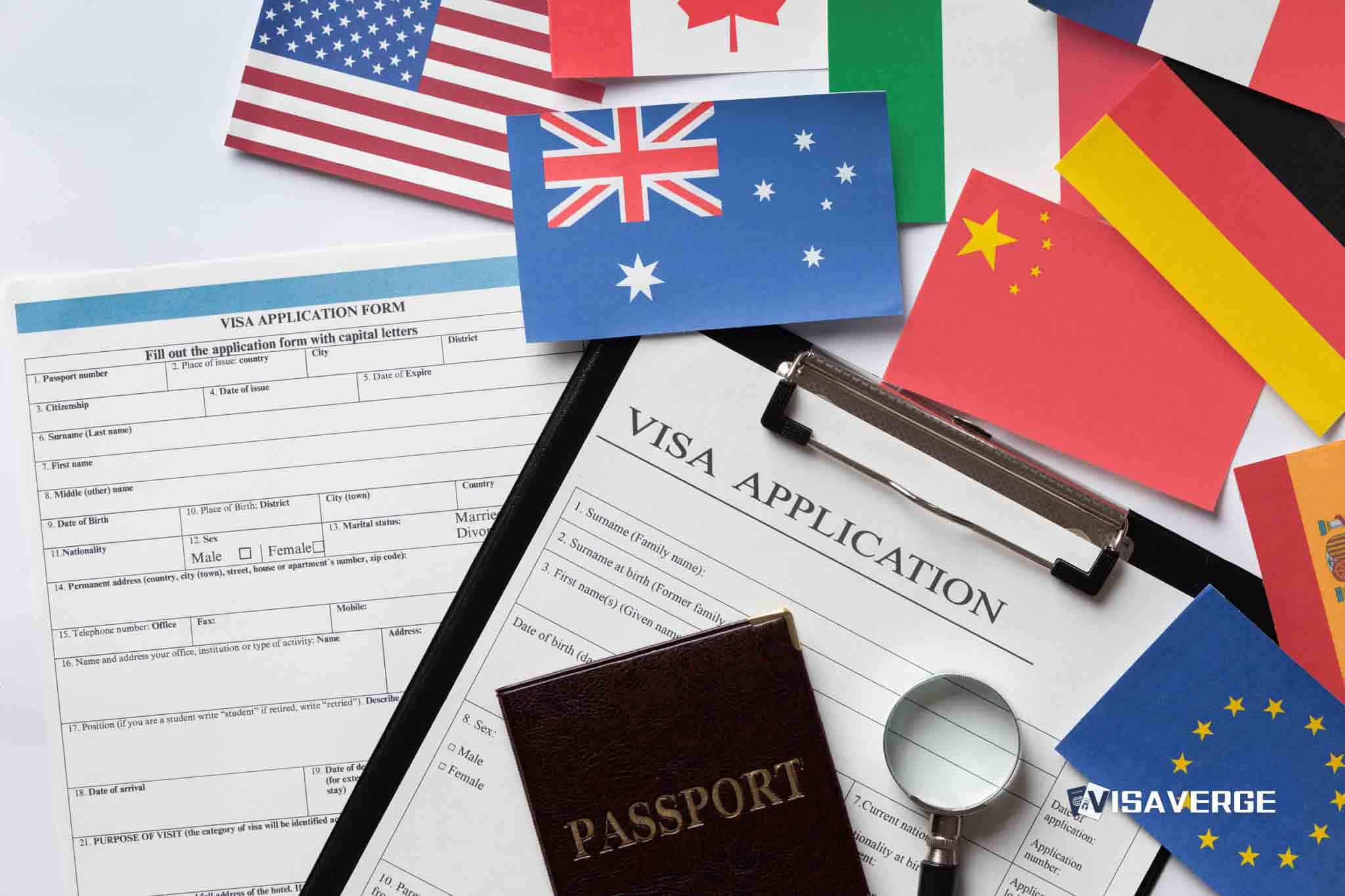As of October 1, 2025, the United States 🇺🇸 federal government is in a government shutdown after a lapse in funding, raising urgent questions for families relying on the H-4 visa. Consular officials say visa and passport services are generally fee-funded and expected to continue “as the situation permits.” That means many consulate appointments, including H-4 visa stamp interviews, may still go forward, but travelers should prepare for slower consulate operations, limited staff, and possible last-minute changes.
Families with scheduled interviews should confirm directly with the post handling their case and plan for delays in visa printing and pickup. The State Department typically keeps core consular functions running during shutdowns because the work is paid for through application fees. Still, posts abroad must manage with reduced local resources and must prioritize emergencies, diplomatic needs, and safety considerations.

In practice, this can mean fewer appointment slots, longer lines, and slower document delivery. While officials have not announced a broad halt to H-4 appointments, past shutdowns have shown that processing can slow and some services may be temporarily scaled back. VisaVerge.com reports that applicants should expect uneven conditions from post to post, with local staffing and security rules shaping how each consulate delivers services during the funding gap.
What applicants should expect
- Many consulate appointments may continue but with reduced capacity.
- Visa printing and passport return can take longer than usual even if your interview is held.
- Some families may complete the interview but face additional waits for post-interview steps due to limited resources.
- Administrative processing cases are likely to see limited movement until full staffing resumes, though some will be worked as resources allow.
- Service levels will vary widely by post — some may run near-normal operations while others slow sharply.
Consular posts will prioritize essential cases (diplomatic visas, extreme emergencies) before routine demand. H-4 visas are typically treated as routine unless a true emergency exists.
Practical risks for H-4 families
Delays can have outsized consequences because H-4 travel is often tied to:
- School schedules
- Medical needs
- H-1B employment timelines
A delayed visa can affect housing, childcare, payroll, and education. Families should plan accordingly and build extra time into travel or return-date plans.
Immediate actions for H-4 families
- Confirm your appointment directly with the consulate handling your case using the appointment portal and published contact channels.
- Arrive prepared with all required documents so you don’t need a second visit.
- Build in buffer time for visa printing and delivery after the interview.
- Avoid nonessential travel until funding is restored, if you can.
- Monitor official updates daily for any changes in consulate operations.
- Plan for delays and arrange backup childcare, work coverage, or school notices if return travel slips.
Consulate operations during a funding lapse
- Fee-funded services generally continue, but only “as the situation permits.” Reduced staffing can slow interviews, printing, and passport return.
- Essential services get priority. Diplomatic and extreme emergency cases go first; routine H-4 visa cases may wait longer.
- Past shutdowns slowed processing and temporarily curtailed some services at certain posts; similar slowdowns are possible now.
- Local conditions drive outcomes. Each consulate sets its schedule based on staff, security environment, and local rules, so experiences will vary.
For official updates, check the U.S. Department of State’s visa resources page at the U.S. Department of State – Bureau of Consular Affairs. That page links to embassy and consulate websites where posts publish operating status, appointment guidance, and any service reductions during the government shutdown.
Travel planning and risk-reduction tips
If travel is unavoidable, take these precautions:
- Book changeable flights and refundable hotels where possible.
- Allow extra time between the interview and planned return.
- Alert your employer or school early about possible shifts in your return date.
- Carry extra documentation, and expect slower handoffs with third-party couriers.
- Prepare for possible rebooking fees if the visa is not issued within the expected timeline.
- Keep copies of all receipts and communications to explain delays to a school or HR office.
If your appointment is canceled or delayed
- Reschedule at the earliest slot provided by the appointment system.
- Follow posted instructions for emergency appointment requests if you face an urgent medical or safety need — note that capacity is limited.
- If your case involves prior administrative processing, expect slower progress until full staffing returns.
Communication and information sources
- Do not rely on third-party rumors about closures.
- The most reliable information comes from the specific consulate where your interview is booked.
- Many consulates post daily updates on their websites or send email alerts.
- If your family is abroad and your appointment is approaching, use the appointment portal and any listed contact methods to confirm whether the interview will be honored and whether any steps have changed.
Key takeaway
This shutdown does not change legal visa requirements; it mainly affects speed and availability. The safest approach is simple: confirm, prepare, and plan for delays. Families who stay flexible, check official channels often, and keep documents ready have the best chance of moving forward even as consulate operations adjust day by day.
Frequently Asked Questions
This Article in a Nutshell
The October 1, 2025 U.S. federal government shutdown has raised concerns for families relying on H-4 visas. Because visa and passport services are fee-funded, many consular functions are expected to continue “as the situation permits,” but posts will likely operate with reduced staff and prioritization of essential cases. Applicants may face fewer interview slots, longer lines, slower visa printing, and delayed passport return. Administrative processing cases could see limited movement. Families should confirm appointments with their specific consulate, bring complete documentation, build time buffers for printing and delivery, avoid nonessential travel, and monitor official State Department updates. The shutdown affects timing and availability but not the legal visa criteria.












